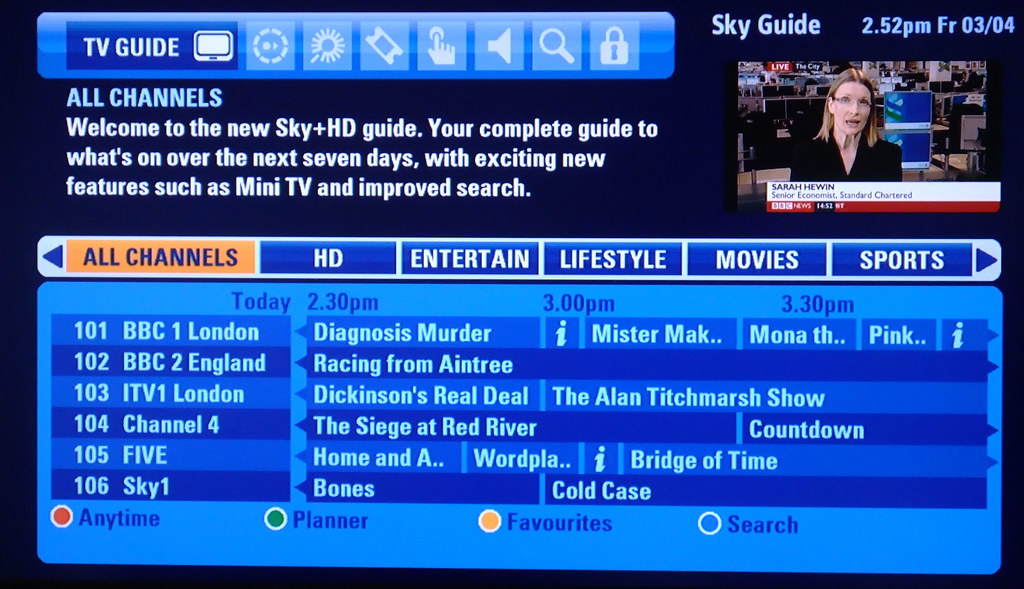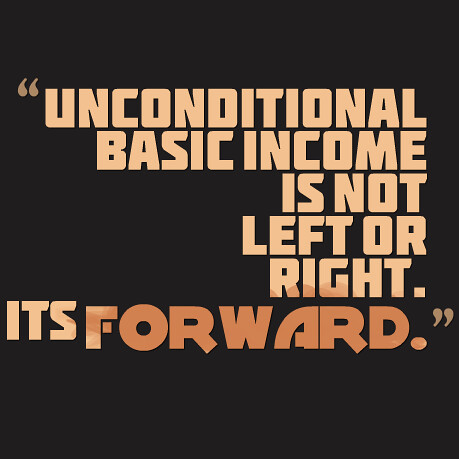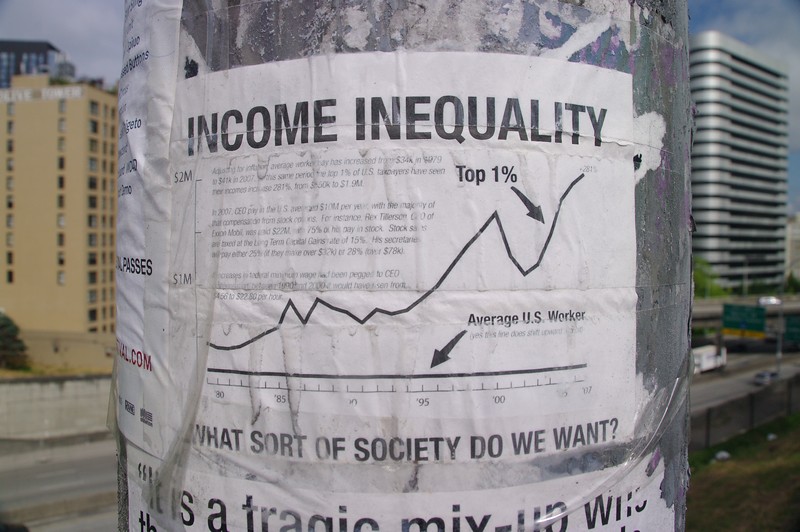 Together with Formula 1, tennis is the other sport I love – and my favourite player by far is Rafa!
Together with Formula 1, tennis is the other sport I love – and my favourite player by far is Rafa!
We often apply game theory to various sports and consider how players, teams and individuals can think strategically. One of the big debates in tennis is ‘who is the best ever’ and I argue that Nadal is the greatest, based on a huge range of metrics.
I saw this article in the Economist, providing analysis and comparison between some of the best tennis players. It shows how we can use economic thinking, probability, game theory and analysis to come to something of an answer about who is the greatest, considering the various players’ runs to the title in the Grand Slams. Of course the reason I’m posting this is because according to the Economist, Rafa is the best! And the reasoning is very sound. Enjoy. I certainly did.
Sorry Roger: Rafael Nadal is not just the King of Clay The Economist (13/09/17)
Questions
- What is game theory and why is it useful?
- How does the rating system aim to measure the skill of a tennis champion?
- In this particular scenario, why is it important to use probabilities?
- We can use game theory to think about penalty shoot outs and whether footballers play to the Nash equilibrium. Can we also use the Nash equilibrium when thinking about tennis? (Think about the serve!)
 The term ‘Google it’ is now part of everyday language. If there is ever something you don’t know, the quickest, easiest, most cost-effective and often the best way to find the answer is to go to Google. While there are many other search engines that provide similar functions and similar results, Google was revolutionary as a search engine and as a business model.
The term ‘Google it’ is now part of everyday language. If there is ever something you don’t know, the quickest, easiest, most cost-effective and often the best way to find the answer is to go to Google. While there are many other search engines that provide similar functions and similar results, Google was revolutionary as a search engine and as a business model.
This article by Tim Harford, writing for BBC News, looks at the development of Google as a business and as a search engine. One of the reasons why Google is so effective for individuals and businesses is the speed with which information can be obtained. It is therefore used extensively to search key terms and this is one of the ways Google was able to raise advertising revenue. The business model developed to raise finance has therefore been a contributing factor to the decline in newspaper advertising revenue.
Google began the revolution in terms of search of engines and, while others do exist, Google is a classic example of a dominant firm and that raises certain problems. The article looks at many aspects of Google.
Just google it: The student project that changed the world BBC News, Tim Harford (27/03/17)
Questions
- Is Google a natural monopoly? What are the characteristics of a natural monopoly and how does this differ from a monopoly?
- Are there barriers to entry in the market in which Google operates?
- What are the key determinants of demand for Google from businesses and individuals?
- Why do companies want to advertise via Google? How might the reasons differ from advertising in newspapers?
- Why has there been a decline in advertising in newspapers? How do you think this has affected newspapers’ revenue and profits?
 In the blog OPEC deal pushes up oil prices John discussed the agreement made by OPEC members to reduce total oil output from the start of 2017, with Saudi Arabia making the biggest cut in output. The amount of oil being provided is a key determinant of the oil price and this agreement to reduce oil output contributed to rising prices. However, now oil prices have begun to fall (see chart below) with Saudi Arabia in particular recording an increase in output but all OPEC nations noting that global crude stocks had risen.
In the blog OPEC deal pushes up oil prices John discussed the agreement made by OPEC members to reduce total oil output from the start of 2017, with Saudi Arabia making the biggest cut in output. The amount of oil being provided is a key determinant of the oil price and this agreement to reduce oil output contributed to rising prices. However, now oil prices have begun to fall (see chart below) with Saudi Arabia in particular recording an increase in output but all OPEC nations noting that global crude stocks had risen.
Supply and demand are key here and over the past few years, it has been a problem of excess supply that has led to low prices. OPEC nations have been aiming to achieve greater stability in global oil markets. Given the excess supply, it has been output of oil that the cartel member have been trying to cut. That was the point of the agreement that came into effect from the start of 2017. However, even with the recent increase in production Saudi Arabia notes that its output is still in line with its output target. The 10 percent fall in crude prices over such a short period of time has led to renewed concerns that pledges to reduce production will not be met. However Saudi Arabia’s energy ministry stated:
“Saudi Arabia assures the market that it is committed and determined to stabilising the global oil market by working closely with all other participating Opec and non-Opec producers.”
There were already concerns about the oil market relating to a potential increase in US shale oil output. Oil producers include OPEC and non-OPEC members and so while the cartel has agreed to cut production, it has little control over production from non-cartel members.  This was one of the main factors that contributed to the oil price lows that we previously saw. OPEC’s forecast for oil production from non-OPEC member has been raised for 2017 and overall production from all oil producing nations looks set to increase for the year, despite OPEC curbing output by 1.2 million barrels per day. However, despite the 10% drop, the price of crude oil ($50) still remains well above its low of $28 in January 2016.
This was one of the main factors that contributed to the oil price lows that we previously saw. OPEC’s forecast for oil production from non-OPEC member has been raised for 2017 and overall production from all oil producing nations looks set to increase for the year, despite OPEC curbing output by 1.2 million barrels per day. However, despite the 10% drop, the price of crude oil ($50) still remains well above its low of $28 in January 2016.
Oil prices are one of the key factors that affect inflation and with UK inflation expected to rise, this fall in oil prices may provide a small and temporary pause in the rise in the rate of inflation. There are many inter-related factors that affect oil prices and it really is a supply and demand market. If US shale oil production continues to rise, then total oil output will rise too and this will push down prices. If OPEC members undertake further production curbs, then this will push supply back down. Then we have demand to consider! Watch this space.
Report
OPEC Monthly Oil Market Report OPEC (14/3/17)
Articles
Saudis stand by commitment to oil production cuts Financial Times, Anjli Raval and David Sheppard (15/3/17)
Oil prices fall after Opec stocks rise BBC News (14/3/17)
Crude oil price slumps to new three-month low after OPEC supply warning Independent, Alex Lawler (14/3/17)
Opinion: Saudi Arabis has a big motivating interest in keeping oil prices high MarketWatch, Thomas H Kee Jr. (14/3/17)
Why oil prices may come under even more pressure next month Investor’s Business Daily, Gillian Rich (13/3/17)
Oil price crashes back towards $50 as Opec raises US oil forecasts The Telegraph, Jillian Ambrose (14/3/17)
Data and Information
Brent Crude Prices Daily US Energy Information Administration
OPEC Homepage Organisation of the Petroleum Exporting Countries
Questions
- What are the demand and supply-side factors that affect oil prices? Do you think demand and supply are relatively elastic or inelastic? Explain your answer.
- Use a demand and supply diagram to illustrate how OPEC production curbs will affect oil prices.
- If we now take into account US shale production rising, how will this affect oil prices?
- Why have OPEC members agreed to curb oil production? Is it a rational decision?
- What are the key points from the oil market report?
- How do oil prices affect a country’s rate of inflation?
- What, do you think, are oil prices likely to be at the end of the year? What about in ten years? Explain your answer.
- Should the USA continue to invest in new shale oil production?
 As an avid sport’s fan, Sky Sports and Eurosport are must haves for me! In the days leading up to the end of January, it was a rather tense time in my house with the prospect of Eurosport being removed from anyone who was a Sky TV subscriber. Thankfully the threat has now gone and tranquility returns, but what was going on behind the scenes?
As an avid sport’s fan, Sky Sports and Eurosport are must haves for me! In the days leading up to the end of January, it was a rather tense time in my house with the prospect of Eurosport being removed from anyone who was a Sky TV subscriber. Thankfully the threat has now gone and tranquility returns, but what was going on behind the scenes?
Whether you have Sky TV, BT, Virgin or any other, we generally take it for granted that we can pick and choose the channels we want, pay our subscription to our provider and happily watch our favourite shows. However, behind the scenes there is a web of deals. While Sky own many channels, such as Sky Sports; BT own others and there are a range of other companies that own the rest. Some companies pay Sky for their channels to be shown, while Sky pays other companies for access to their channels.
One such company is Discovery, which owns a range of channels including TLC, Eurosport, DMAX and Animal planet. Discovery then sells these channels to providers, such as Sky and Virgin, who pay a price for access. The problem was that Sky and Discovery had failed to reach an agreement for these channels and as the deadline of 31st January 2017 loomed, it became increasingly possible that Discovery would simply remove its channels from Sky. This would mean that Sky customers would no longer have access to these channels, while customers with other providers would continue to watch them, as companies such as Virgin still had an agreement in place.
 The issue was money. Hours before the deadline, a deal was finally reached such that Discovery will now keep its programmes on Sky for ‘years to come’. Discovery has indicated the final deal was better than had originally been proposed, while Sky indicate that the deal accepted by Discovery was the same as had previously been offered! Although no details of the financial agreement have been released, it seems likely that either Sky increased the price they were willing to pay or Discovery lowered the price it was asking for. Both companies stood to lose if the dispute was not settled, but it’s interesting to consider which company was at more risk. Following the announcement that a deal had been struck, Discovery shares rose by 2.5 per cent, while Sky’s share remained unchanged.
The issue was money. Hours before the deadline, a deal was finally reached such that Discovery will now keep its programmes on Sky for ‘years to come’. Discovery has indicated the final deal was better than had originally been proposed, while Sky indicate that the deal accepted by Discovery was the same as had previously been offered! Although no details of the financial agreement have been released, it seems likely that either Sky increased the price they were willing to pay or Discovery lowered the price it was asking for. Both companies stood to lose if the dispute was not settled, but it’s interesting to consider which company was at more risk. Following the announcement that a deal had been struck, Discovery shares rose by 2.5 per cent, while Sky’s share remained unchanged.
While Sky said that viewing figures on Discovery’s channels had been falling and that it had been over-paying for years, it seems likely that if a deal had not been reached, millions of Sky customers may have considered switching to other providers, who were still able to show Discovery channels. Although Sky has been looking to cut its costs and one way is to cut the price it pays for channels, failure to reach an agreement may have cost it a significant sum in lost revenue, as channels such as Eurosport are hugely popular.
Discovery claimed that the price Sky was paying them was not fair and that it was paying them less for its channels that it did 10 years ago. Susanna Dinnage, Discovery’s Managing Director in the UK said:
“We believe Sky is using what we consider to be its dominant market position to further its own commercial interest over those of viewers and independent broadcasters. The vitality of independent broadcasters like Discovery and plurality in TV is under threat.”
 Sky claimed that Discovery was demanding close to £1bn for its programmes and that given that these channels were losing viewers, this price was unrealistic. A spokesman said:
Sky claimed that Discovery was demanding close to £1bn for its programmes and that given that these channels were losing viewers, this price was unrealistic. A spokesman said:
“Despite our best efforts to reach a sensible agreement, we, like many other platforms and broadcasters across Europe, have found the price expectations for the Discovery portfolio to be completely unrealistic. Discovery’s portfolio of channels includes many which are linear-only where viewing is falling …
Sky has a strong track record of understanding the value of the content we acquire on behalf of our customers, and as a result we’ve taken the decision not to renew this contract on the terms offered …
We have been overpaying Discovery for years and are not going to anymore. We will now move to redeploy the same amount of money into content we know our customers value.”
Here we have a classic case of two firms in negotiation; each with a lot to lose, but both wanting the best outcome. There are hundreds of channels with millions of programmes and hence it is a competitive market. So why was it that Discovery could pose such a threat to the huge broadcaster? The following articles consider the dispute and the eleventh hour agreement.
Discovery strikes deal to keep channels on Sky BBC News (1/2/17)
Discovery channel strikes last-minute deal with Sky to stay on TV, saving Animal Planet and Eurosport Independent, Aatif Sulleyman (1/2/17)
Eurosport stays o Sky after late deal is struck with hours to spare between broadcasting giant and Discovery Mail Online, Kieran Gill (1/2/17)
Discovery averts UK blackout with Sky in last-minute deal Bloomberg, Rebecca Penty, Joe Mayes and Gerry Smith (1/2/17)
Is Sky losing Discovery? Eurosport, Animal Planet and other fan favourite set to stay International Business Times, Owen Hughes (1/2/17)
Discovery goes to war with Sky over channel fees with blackout threat The Telegraph, Christopher Williams (25/1/17)
Questions
- Can you use game theory to outline the ‘game’ that Sky and Discovery were playing?
- Is the ‘threat’ of stopping access to channels credible?
- Although we don’t know the final financial settlement, why would Sky have had a reason to increase the price it paid to Discovery?
- Why would it be in Discovery’s interests to accept the deal that Sky offered?
- Susanna Dinnage suggested that Sky was using its dominant market position. What does this mean and how does this suggest that Sky might be able to behave?
- What type of market structure is the pay-TV industry? Think about it in terms of broadcasters, channels and programmes as you might get very different answers!
 The UK benefits system is complex and this is just one reason why some people fall through the safety net. There are criticisms that it doesn’t reward work and doesn’t provide sufficient incentives to move off benefits and into work. One rather radical policy that has been discussed in numerous countries is the idea of a ‘Basic Income’.
The UK benefits system is complex and this is just one reason why some people fall through the safety net. There are criticisms that it doesn’t reward work and doesn’t provide sufficient incentives to move off benefits and into work. One rather radical policy that has been discussed in numerous countries is the idea of a ‘Basic Income’.
The Basic Income or Citizen’s Income is a policy where individuals receive a regular payment from the government, essentially for doing nothing. The income is paid and aims to cover basic living costs and on top of this, individuals can then work, earn income and pay tax on it. Experiments of this policy are already in place and over the next few years, we may see many more being trialled and much discussion of the possibility of implementing this in the UK. We tend to be fairly risk averse when it comes to radical policies and so while we may see discussion of it in the UK, I imagine we’ll want to see the relative success of the policy in other countries first!
There are many variations of the scheme and lots of questions that need addressing. Will it encourage people to work more or less? Might it reduce the stigma of claiming benefits, if this is a basic income that everyone receives? Does it simplify the system and hence provide more people with a basic income thus targeting poverty?
Some proposals have this payment as a universal one – non means tested and not conditional on anything.  Other proposals, including one in Finland, sees just the unemployed receive the benefit and appears to be a social experiment to see if such a policy discourages the unemployed from taking jobs. Traditionally individuals receive a benefit if they are out of work, but this benefit can be cut (in some cases quite substantially) if they begin to work. This creates a disincentive to supply labour. However, under the basic income scheme, those who moved into work would continue to receive the basic income payment and hence the disincentive effect is removed. The policy thus creates a basic level of economic security. As Howard Reed and Stewart Lansley argue, it would offer:
Other proposals, including one in Finland, sees just the unemployed receive the benefit and appears to be a social experiment to see if such a policy discourages the unemployed from taking jobs. Traditionally individuals receive a benefit if they are out of work, but this benefit can be cut (in some cases quite substantially) if they begin to work. This creates a disincentive to supply labour. However, under the basic income scheme, those who moved into work would continue to receive the basic income payment and hence the disincentive effect is removed. The policy thus creates a basic level of economic security. As Howard Reed and Stewart Lansley argue, it would offer:
“…financial independence and freedom of choice for individuals between work and leisure, education and caring, while recognising the huge value of unpaid work”.
There isn’t universal support for this type of scheme and many remain very cautious about such a radical policy and how the incentives will work. Key questions focus around the marginal rate of income tax that might be needed to finance such a policy. Furthermore, there is discussion about the equity of the policy if it is universal and hence non means-tested.
In Switzerland, the policy was put to a public referendum and it was rejected, with 75% of voters voting against such a policy. However, with changes in the structure of economies and, in many countries, technological change increasingly leading to automation, some argue that such a system will help to protect people. Lord Skidelsky, Professor of Political Economy at Warwick University said:
“Credible estimates suggest it will be technically possible to automate between a quarter and a third of all current jobs in the western world within 20 years … It [Basic Income] would ensure the benefits of automation were shared by the many, not just the few.”
Basic Income or Citizen’s Income is certainly something we are likely to hear a lot about during 2017. Whether or not the time has come for implementation is another matter, but it’s a good idea now to look into both sides and the relative success of the upcoming trials around the world.
8 basic income experiments to watch out for in 2017 Business Insider, Chris Weller (24/1/17)
What is basic income? Basic Income Earth Network (January 2017)
Finland trials basic income for unemployed The Guardian, Jon Henley (3/1/17)
Howard Reed and Stewart Lansley, Universal Basic Income: An idea whose time has come? Citizen’s Income Trust (14/6/16)
Is the world ready for a guaranteed basic income? Freakonomics, Stephen Dubner (13/4/16)
France’s Benoit Hamon rouses Socialists with basic income plan BBC News, Lucy Williamson (24/1/17)
Universal basic income trials being considered in Scotland The Guardian, Libby Brooks (1/1/17)
Questions
- What is basic income?
- What are three advantages of this policy? If you can, try to use a diagram to explain why this is an advantage.
- What are three disadvantages of moving towards this type of policy?
- Why does the provision of benefits affect an individual’s labour supply decision?
- Do you think that income tax would have to rise in order to finance this policy? Do you think high income earners would be prepared to pay a higher rate of tax in order to receive the basic income?
- If the trials showed that the policy did create an incentive to work in countries like Finland, do you think the results would also occur in the UK?
 Together with Formula 1, tennis is the other sport I love – and my favourite player by far is Rafa!
Together with Formula 1, tennis is the other sport I love – and my favourite player by far is Rafa!






